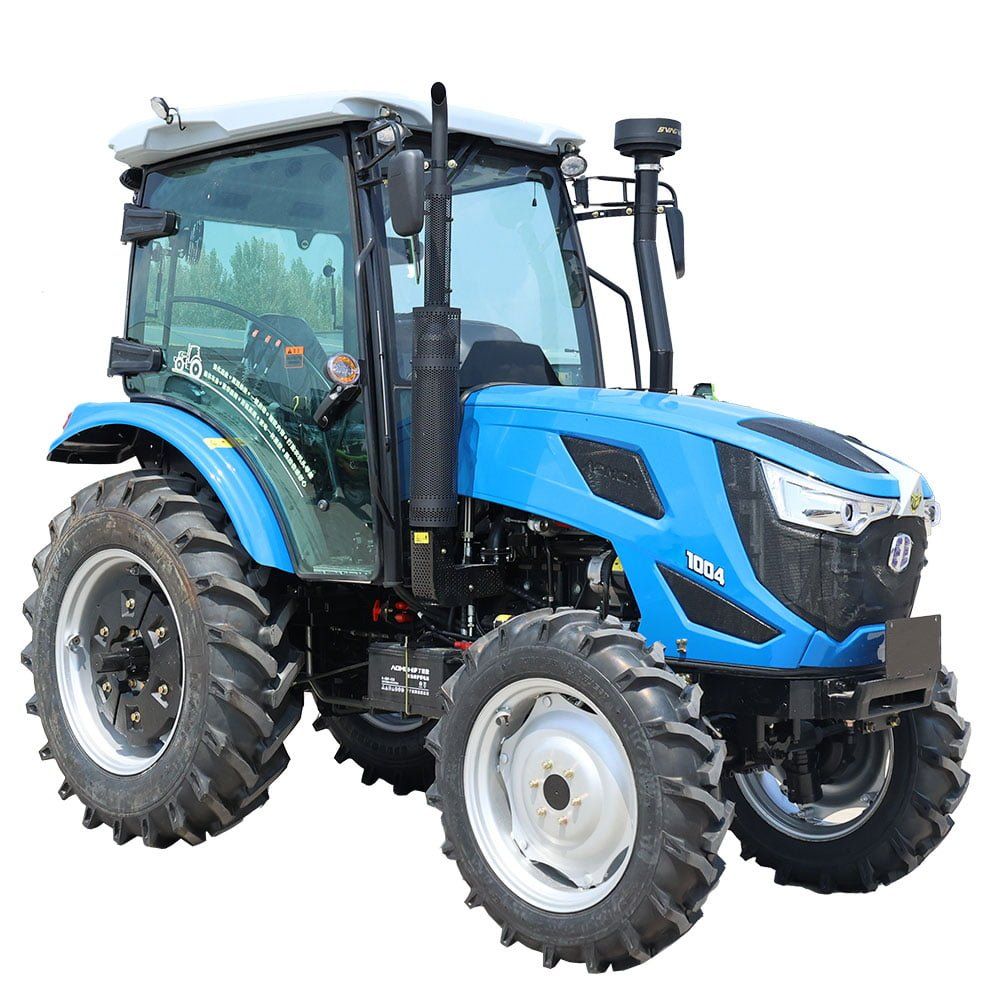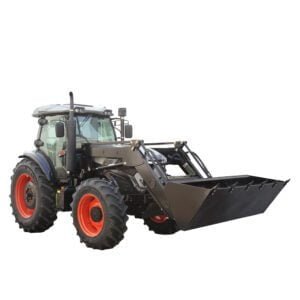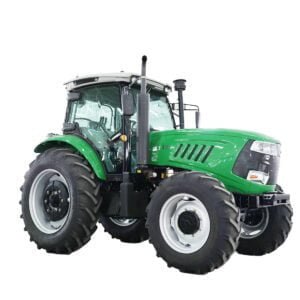Correo electrónico: [email protected] WhatsApp: 8618266768780
Beneficios de importar tractores del extranjero
¡Bienvenido a mi blog!
Antes de profundizar en el contenido, me encantaría que te unas a mí en mis plataformas de redes sociales, donde comparto más información, interactúo con la comunidad y publico actualizaciones. Puedes conectarte conmigo de la siguiente manera:
Facebook: https://www.facebook.com/profile.php?id=100072217509763
LinkedIn: https://www.linkedin.com/company/74949059/admin/dashboard/
YouTube:www.youtube.com/@tractormanufacturer-lc5qz,www.youtube.com/@excavatormanufacturers-sn9hk
TikTok: www.tiktok.com/@tractormanufacturer, www.tiktok.com/@excavatormanufacturers
Ahora, comencemos nuestro viaje juntos. Espero que el contenido que se incluye aquí te resulte interesante, interesante y valioso.
Introducción

¿Por qué importar un tractor?
Importar un tractor del extranjero puede ofrecer varias ventajas a agricultores, empresas y particulares que buscan equipos especializados o rentables. Tanto si se trata de una explotación agrícola a gran escala como de una pequeña explotación agrícola recreativa, el mercado mundial de tractores ofrece una amplia gama de opciones que se adaptan a distintas necesidades.
En esta guía completa, analizaremos en profundidad los principales beneficios de importar tractores, exploraremos los factores que se deben tener en cuenta al realizar una compra y brindaremos respuestas a preguntas frecuentes. Al final de este artículo, comprenderá mejor cómo la importación de un tractor puede mejorar sus operaciones y ahorrarle dinero.
Beneficios clave de Importación de tractores
Amplia gama de opciones
- Equipo especializado: Los mercados extranjeros a menudo ofrecen tractores especializados diseñados para tareas o terrenos específicos que pueden no estar disponibles a nivel nacional.
- Características únicas: Los tractores importados pueden tener características o configuraciones únicas que pueden mejorar la eficiencia y la productividad.
- Personalización: Muchos fabricantes permiten la personalización, lo que le permite adaptar el tractor a sus necesidades exactas.
Ahorro de costes
- Costos de fabricación más bajos: En algunos países, los costos de fabricación de los tractores son más bajos, lo que puede traducirse en ahorros significativos para el comprador.
- Compras al por mayor: Importar varios tractores o comprarlos al por mayor puede resultar en descuentos sustanciales.
- Evitar impuestos locales: Dependiendo de su ubicación y el país de origen, es posible que pueda aprovechar impuestos o aranceles de importación más bajos.
Mayor calidad
- Estándares de calidad más estrictos: Algunos países tienen estándares de control de calidad más estrictos para la fabricación de tractores, lo que garantiza que el equipo importado sea duradero y confiable.
- Tecnología avanzada: Los fabricantes extranjeros pueden estar a la vanguardia de la tecnología de tractores, ofreciendo modelos con las últimas innovaciones.
Personalización:
- Especificaciones personalizadas: Muchos fabricantes permiten la personalización, lo que le permite adaptar el tractor a sus requisitos exactos, como el tamaño del motor, la capacidad hidráulica y las opciones de neumáticos.
- Características únicas: Puede especificar características únicas que pueden no estar disponibles en los modelos estándar, como accesorios especializados o configuraciones de cabina.
Factores a tener en cuenta al momento de Importación de un tractor
-
 Tractor 140HP con tracción en las 4 ruedas 1604
Tractor 140HP con tracción en las 4 ruedas 1604 -
 Tractor agrícola de 140 CV 1404
Tractor agrícola de 140 CV 1404 -
 Tractor agrícola 1304 de 130 CV
Tractor agrícola 1304 de 130 CV -
 El tractor de modernización QILU 260HP más pesado
El tractor de modernización QILU 260HP más pesado -
 Potente tractor de chasis pesado QILU 240HP
Potente tractor de chasis pesado QILU 240HP -
 Tractor agrícola QILU de 220 CV
Tractor agrícola QILU de 220 CV -
 Proveedor de tractores de China 100HP
Proveedor de tractores de China 100HP -
 Fábrica de tractores OEM 80HP
Fábrica de tractores OEM 80HP -
 Tractor chino de 70 HP
Tractor chino de 70 HP
La importación de un tractor implica una compleja interacción de diversos factores. Para garantizar un proceso de importación sin problemas y exitoso, es fundamental tener en cuenta lo siguiente:
Cumplimiento normativo
- Restricciones de importación: Cada país tiene normativas específicas para la importación de maquinaria agrícola, que pueden incluir restricciones por antigüedad, marca o especificaciones técnicas.
- Normas de seguridad: Asegúrese de que el tractor cumpla con las normas de seguridad de su país. Esto puede implicar certificaciones y pruebas.
- Regulaciones ambientales: Algunos países tienen regulaciones ambientales estrictas respecto a las emisiones y los niveles de ruido.
- Cuotas y aranceles: Conozca las cuotas y aranceles de importación aplicables a los tractores.
Logística y Envíos
- Métodos de envío: Elija el método de envío más adecuado en función del tamaño y el peso del tractor, así como de la urgencia de la entrega. Las opciones incluyen transporte marítimo, aéreo y terrestre.
- Seguro: Obtenga una cobertura de seguro adecuada para protegerse contra pérdidas o daños durante el tránsito.
- Puerto de entrada: Seleccione un puerto de entrada que esté bien equipado para manejar maquinaria agrícola.
- Despacho de aduana: Comprender los procedimientos de despacho de aduanas y los requisitos de documentación.
Consideraciones financieras
- Desglose de costos: Calcule el costo total, incluido el precio de compra, los gastos de envío, los derechos de aduana, los impuestos y cualquier tarifa adicional.
- Condiciones de pago: Determinar las condiciones de pago más adecuadas con el proveedor.
- Tipos de cambio de divisas: Monitorear los tipos de cambio de divisas para gestionar los riesgos financieros.
- Opciones de financiación: Explore opciones de financiamiento si es necesario.
Especificaciones del tractor
- Compatibilidad: Asegúrese de que el tractor sea compatible con la infraestructura local, los tipos de combustible y las condiciones climáticas.
- Mantenimiento: Considere la disponibilidad de repuestos y servicio en su región.
- Personalización: Si se requiere personalización, trabaje en estrecha colaboración con el proveedor para garantizar que el tractor satisfaga sus necesidades específicas.
Selección de proveedores
- Reputación: Investigue la reputación y el historial del proveedor.
- Experiencia: Elija un proveedor con experiencia en la exportación de maquinaria agrícola.
- Comunicación: Asegúrese de una comunicación efectiva con el proveedor para evitar malentendidos.
- Servicio postventa: Infórmese sobre el servicio postventa y la garantía del proveedor.
Asuntos legales y contractuales
- Acuerdo de compra: Tenga un acuerdo de compra detallado que describa todos los términos y condiciones.
- Propiedad intelectual: Asegúrese de que el proveedor tenga los derechos de propiedad intelectual necesarios.
- Resolución de disputas: Considere incluir una cláusula de resolución de disputas en el contrato.
Consejos adicionales
- Consulte con un especialista en importación: Busque asesoramiento de un especialista en importaciones o un agente de aduanas para garantizar el cumplimiento de todas las regulaciones.
- Visita al proveedor: Si es posible, visite las instalaciones del proveedor para inspeccionar los tractores antes de comprarlos.
- Únase a las asociaciones industriales: Conéctese con asociaciones industriales para establecer contactos con otros importadores y mantenerse actualizado sobre las tendencias de la industria.
Tabla comparativa: nacional vs. importado Tractores
| Característica | Tractores domésticos | Tractores importados |
|---|---|---|
| Disponibilidad | Fácilmente disponible | Amplia gama de opciones |
| Costo | Generalmente más alto | Potencialmente más bajo |
| Personalización | Opciones limitadas | Más opciones de personalización |
| Calidad | Varía | Puede ser mayor debido a estándares más estrictos |
| Apoyo | Amplia red de distribuidores | Puede requerir más esfuerzo para encontrar apoyo. |
Conclusión

Importar un tractor del extranjero puede ser una experiencia gratificante, ya que ofrece acceso a una gama más amplia de opciones, posibles ahorros de costos y equipos de mayor calidad. Sin embargo, es esencial considerar cuidadosamente los factores involucrados, como los costos de envío, los aranceles de importación y el cumplimiento de las regulaciones. Si realiza una investigación exhaustiva y trabaja con un proveedor de confianza, podrá tomar una decisión informada y encontrar el tractor perfecto para sus necesidades.
Preguntas frecuentes
¿Cuánto tiempo se tarda en importar un tractor?
- El tiempo necesario para importar un tractor puede variar significativamente dependiendo de diversos factores, entre ellos el país de origen, el puerto de destino, los procedimientos de despacho de aduanas y las inspecciones necesarias. Por lo general, todo el proceso puede llevar desde unas pocas semanas hasta varios meses.
¿Qué documentos se requieren para importar un tractor?
- Los documentos específicos que se requieren pueden variar según su ubicación y el país de origen. Sin embargo, los documentos más comunes incluyen:
- Factura comercial
- guía de carga
- Lista de embalaje
- Certificado de origen
- Licencia de importación (si se requiere)
- Certificación de seguridad (si se requiere)
- Certificado fitosanitario (si aplica)
¿Puedo importar un usado? tractor?
- Sí, normalmente puedes importar un tractor usado. Sin embargo, puede haber requisitos y restricciones adicionales en comparación con la importación de un tractor nuevo. Por ejemplo, es posible que tengas que proporcionar documentación que demuestre la antigüedad y el estado del tractor.
¿Cuáles son los riesgos potenciales de importar un tractor?
- Algunos riesgos potenciales asociados con la importación de un tractor incluyen:
- Retrasos en el envío o en el despacho de aduanas
- Daños durante el transporte
- Incumplimiento de las normas de importación
- Dificultad para obtener soporte posventa
- Fluctuaciones monetarias
¿Cómo puedo encontrar un proveedor confiable?
- Para encontrar un proveedor confiable, considere lo siguiente:
- Mercados en línea: Sitios web como Alibaba y Global Sources ofrecen una amplia gama de proveedores de tractores.
- Ferias y exposiciones: Asista a eventos de la industria para conocer a los proveedores en persona.
- Asociaciones industriales: Comuníquese con las asociaciones industriales para obtener recomendaciones.
- Referencias: Solicite referencias de otros importadores.
- Debida diligencia: Investigue exhaustivamente la reputación y la estabilidad financiera del proveedor.
Sobre nosotros
Shandong Qilu Industrial Co., Ltd. es un fabricante y exportador profesional que integra el desarrollo y la producción de excavadoras, cargadoras y tractores. Brindamos el mejor servicio, absolutamente.
Mensajes recientes
demostración de vídeo
-1.png)
¡Póngase en contacto con nosotros hoy!
¿Alguna pregunta, cotización o consulta? Haga clic en el botón para enviar el mensaje.
Qilu Industrial siempre estará aquí para ayudar.









